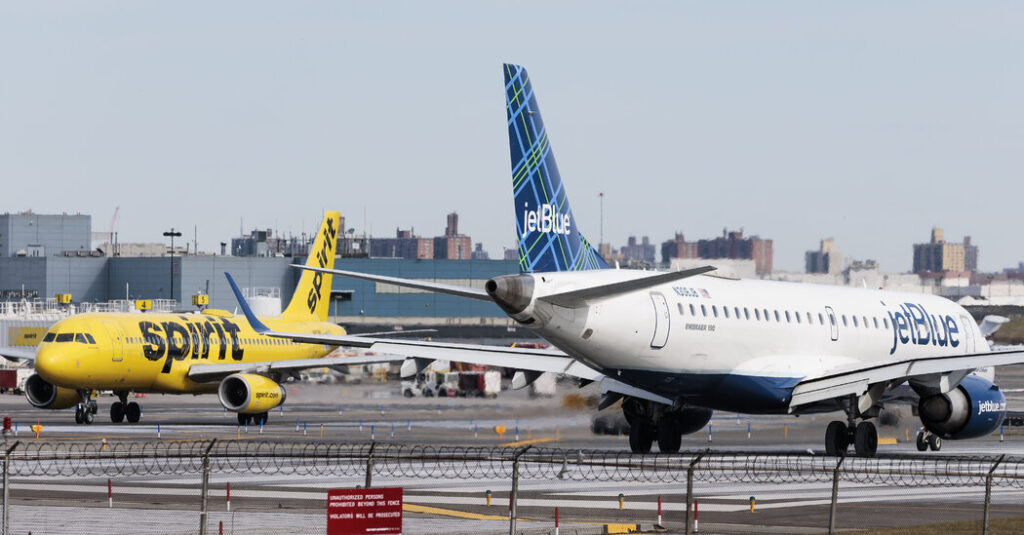JetBlue Airways and Spirit Airlines announced Monday they are withdrawing from their planned $3.8 billion merger after federal antitrust regulators successfully challenged the deal in court. JetBlue announced it would pay Spirit $69 million to terminate the contract.
On January 16, a federal judge in Boston sided with the Justice Department and blocked the proposed merger, ruling that it would reduce competition in the industry and give airlines more freedom to raise ticket prices. Judge William G. Young of the U.S. District Court for the District of Massachusetts noted that Spirit plays an important role in the market as a low-cost carrier, and if JetBlue were to be absorbed, travelers would have fewer options.
“We are proud to have worked with Spirit to develop a vision that challenges the status quo, but given the hurdles to closure that remain, we believe that moving forward independently is a priority,” JetBlue's chief said in a statement. “We jointly decided that this would be in the best interest of both airlines,” the JetBlue chief said. Executive Joanna Geraghty said in a statement on Monday. “We wish the entire Spirit team the best of luck in the future.”
JetBlue and Spirit appealed Judge Young's decision. JetBlue filed a brief last week arguing that the deal should be allowed to go through.
But JetBlue said in a regulatory filing on Jan. 26 that it could terminate the contract. Spirit said in a filing on the same day that it believes there is “no basis to terminate” the agreement.
The merger agreement expires on January 28, but could be extended until July 24 if certain conditions are met. But JetBlue suggested in a January filing that Spirit was not fulfilling some of its obligations under the contract, giving JetBlue leeway to exit.
As part of the merger agreement, JetBlue agreed to pay Spirit and its shareholders $470 million in fees if the deal is blocked. Some legal experts said JetBlue could be willing to fight for the remaining fees by terminating the contract.
Spirit is heavily indebted and last turned a profit before the coronavirus pandemic. Investors see mergers as a company's lifeblood. Since the ruling blocking the merger, the company's stock has lost more than half its value.
Investors viewed the termination as a cost-cutting measure, and JetBlue's stock price soared on the same news.
A merger between the two airlines would have given the combined company an even larger share of the market dominated by American Airlines, Delta Air Lines, Southwest Airlines and United Airlines.
Alaska Airlines also announced plans to expand. In December, it announced that it wanted to buy Hawaiian Airlines for $1.9 billion. The deal is also likely to come under scrutiny from federal antitrust regulators.


